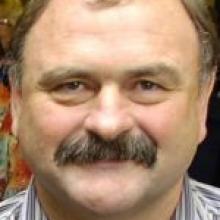
Chief medical officer (Otago) Richard Bunton, in a recent interview, said the hospital was investigating "perhaps two" complaints in 2010 involving patients who said they had been refused the procedure and then were later found to have cancer.
He could not give details about the cases, which were going through the hospital's complaints process.
One was "quite recent", but he was not sure about the other one.
The Health and Disability Commissioner's office said it was unable to say whether it was investigating or had recently investigated any complaints regarding the colonoscopy service in Otago.
A spokeswoman said it was not the office's usual practice to give complaint numbers or discuss complaints unless complainants had spoken to the media.
Asked if he was concerned some doctors were still sending their patients for barium enemas or other less reliable tests because they felt they would be denied a colonoscopy, Mr Bunton said it was not uncommon for doctors to seek other procedures in any service where access was limited.
Last financial year, the board had planned to carry out about 557 procedures, but received funding for an extra 200 procedures.
This followed concerns expressed by some GPs in 2009 about access for their patients and claims some patients, exhibiting all of the accepted signs of bowel cancer, had been denied colonoscopies.
Mr Bunton said this year's planned 800 procedures meant the number would be similar to that carried out with the extra funding in the financial year ended last June.
Figures released by the health minister's office show that in that year the board carried out 1089 procedures, but Mr Bunton said the extra 289 would be those done as part of diagnostic exploration done for hospital in-patients.
Hence, they were not counted in the elective data.
Mr Bunton said the hospital was about to put a proposed referral process template out for consultation with GPs.
It was also hoped it would improve the flow of information back to GPs about patients so they would have a better idea about why someone was not given a colonoscopy.
It was reported in 2009 that work had begun on a referral template.
Mr Bunton said the audit report had highlighted the fact records were not all stored in one place, something which would be overcome when all records were electronic.
The gastroenterology department did a monthly audit of referrals and rejections to ensure the criteria was being applied fairly, he said.
Although Otago was considered to have a low colonoscopy rate per head of population, it was yet to be established if that was inappropriate, he said.
Otago did not show up as being "out of kilter with the rest of the country" when it came to cancer survival rates, he said.
"People assume more is better, but that is not always the case."
Since the report of the audit of 33 referrals concerning GPs in February last year, the hospital had reviewed nursing staffing in the department and made some changes, bought extra cleaning equipment and increased recruiting efforts to fill consultants' vacancies.
It was hoping to offer a gastroenterologist locum a 12-month position and had two more people who might be interested in positions, he said.
Plans have also been drawn up for long-awaited upgrading of the endoscopy suite on the eighth floor of the hospital, but they will not be able to proceed without suitable space being found for University of Otago staff who would be displaced.
• The referral audit, carried out by the Southern Cancer Network, found 23 of the patients involved were later found to have cancer.
The time from referral to treatment for these patients, referred between 2004 and 2009, ranged from 36 days to more than two years.
Five of them were found to have secondary cancers, but there was no information about the stage of cancers diagnosed in the others.
The audit report did not make a finding on harm to 23 patients later found to have cancer, stating that was outside its scope.
It did, however, refer to "prolonged delays" and the possibility that treatment for six rectal cancer patients could result in "poorer outcomes".
At a glance
Publicly-funded colonoscopy figures.
OTAGO:
2007-08: 810
2008-09: 795
2009-10: 1089
SOUTHLAND:
2007-08: 1267
2008-09: 1564
2009-10: 1892
Not all procedures will be the result of GP referral. Some would be carried out on patients as part of diagnostic procedures when they are admitted to hospital.








